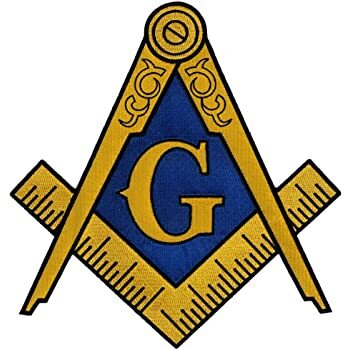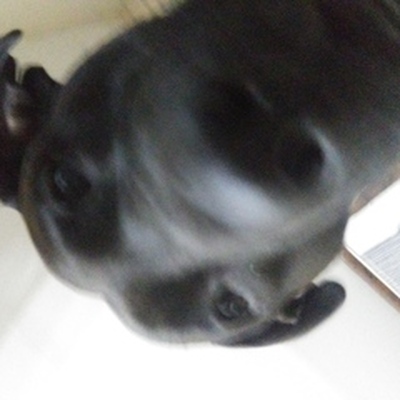
Related Blogs
History of the Freemasons
16 minutes, 42 seconds
-15 Views 0 Comments 0 Likes 0 Reviews

Freemasonry is one of the oldest and most enigmatic fraternal organizations in the world, with roots tracing back to the late 16th and early 17th centuries. Known for its rich traditions, elaborate rituals, and intricate symbolism, Freemasonry has attracted countless individuals seeking personal development, community, and a deeper understanding of moral and ethical principles. While often shrouded in mystery and the subject of various conspiracy theories, the organization is built on ideals of brotherhood, charity, and self-improvement. This article delves into the multifaceted world of Freemasonry, exploring its history, core beliefs, structure, notable members, and the impact it continues to have in the modern era, while also addressing the myths and controversies that have surrounded it for centuries.
History of Freemasonry
Origins and Early Years
Freemasonry traces its roots back to the late 16th to early 17th century, emerging from the stonemason guilds of medieval Europe. These skilled artisans, who built cathedrals and castles, formed secret societies to maintain standards and protect their trade secrets. As the world shifted from stone to enlightenment, these guilds evolved, blending craftsmanship with philosophy, and sprinkling in a dash of mystique.
Development Through the Ages
As the Enlightenment swept across Europe in the 18th century, Freemasonry transformed into a more philosophical organization, welcoming thinkers, politicians, and intellectuals into its ranks. The first Grand Lodge was established in London in 1717, creating a formal structure that spread quickly across the globe. From America to Australia, Masonic lodges popped up like daisies in spring, each fostering a community of like-minded individuals seeking knowledge, fellowship, and sometimes, the best secret handshakes.
Key Historical Events
Freemasonry has seen its fair share of drama over the centuries. From the founding of the United Grand Lodge in England to the issuance of the Masonic Constitution in 1723, pivotal moments shaped its legacy. The French Revolution, with its guillotine and grandeur, also played a role, as many prominent revolutionaries were Masons. And let’s not forget the controversies—like the infamous Morgan Affair in the 1820s, which led to anti-Masonic sentiments in the United States. Intriguing, isn’t it?
Core Beliefs and Principles
Fundamental Tenets
At the heart of Freemasonry are three fundamental tenets: Brotherly Love, Relief, and Truth. Members are encouraged to support one another, assist those in need, and seek knowledge and enlightenment. Picture it as a club where the snack table is replaced by wisdom and charity—every bit as satisfying, but with fewer crumbs.
Philosophical Underpinnings
Freemasonry is often likened to a philosophical journey. It promotes the idea that a moral life leads to spiritual growth and encourages personal development. By fostering self-reflection and encouraging ethical living, Masons believe they can contribute meaningfully to society. It’s not just about building structures; it’s about building character!
Ethical Guidelines
Freemasons adhere to a code of ethics that emphasizes integrity, respect, and fairness. Members commit to being good citizens and contributing positively to their communities, much like your neighbor who always returns the lawnmower (but with a lot more secret handshakes). These values are reinforced through teachings, discussions, and, of course, those great Masonic gatherings.
Structure and Organization
Lodges and Grand Lodges
Think of lodges as small, cozy living rooms where members gather to discuss life's big questions and maybe swap some bad jokes. Each lodge operates under the guidance of a Grand Lodge, the supervisory body that oversees multiple lodges within a region. The Grand Lodge provides structure and ensures that everyone is playing nice in the sandbox—no sandcastle wars here!
Membership and Roles
Membership is open to men (and in some cases, women) of good character who believe in a higher power. Within lodges, individuals take on various roles, like the Worshipful Master (the one in charge, wearing the fancy apron) and other officers who ensure smooth sailing during meetings. Picture a theatrical production without the drama—mostly.
Rituals and Governance
Rituals are the heartbeat of Freemasonry, involving symbolic gestures, ceremonies, and age-old traditions that reinforce teachings and foster camaraderie. Governance is democratic, with members voting on leaders and decisions, ensuring that everyone has a voice (except during the secret handshake voting—it’s still a mystery).
Symbols and Rituals
Significance of Symbols
Freemasonry is rich in symbolism, with tools like the square and compass representing moral guidance and the importance of keeping one's actions in line with one's principles. Each symbol tells a story, inviting members to reflect on their personal journeys. Who knew a simple triangle could carry so much weight?
Ceremonial Practices
Ceremonial practices in Freemasonry are steeped in tradition, often involving dramatic reenactments of moral lessons. These ceremonies allow members to explore the deeper meanings behind Masonic principles while donning some pretty snazzy regalia. It’s like a Broadway show, but with a lot more pondering and a lot fewer ticket sales.
Initiation and Advancement
Becoming a Mason involves several degrees of initiation, each representing different levels of knowledge and moral development. New members go through rituals that teach them about the values of Freemasonry. Advancement is earned, not bought—kind of like leveling up in a video game, minus the virtual dragons!
Famous Freemasons Throughout History
Influential Historical Figures
Freemasonry has attracted a parade of historical heavyweights who left their mark on the world. Think of George Washington, Benjamin Franklin, and Winston Churchill—these were men who knew their way around a good argument... and a good apron! Their connections to the Craft highlight how Freemasonry intertwined with the political and social fabric of their times, often guiding their philosophies and actions.
Modern-Day Freemasons
Today, you might find surprising faces in the ranks of Freemasonry. Celebrities like actors, athletes, and even a few musicians are tipping their hats to the ancient fraternity. From actors like John Wayne to athletes like Shaquille O’Neal, the Craft has managed to capture the attention of noteworthy figures who appreciate its principles of brotherhood and philanthropy. They remind us that even in the modern age, Masonic values are still a badge of honor.
Contributions to Society
Freemasons are not just about secret handshakes and cool rings. Throughout history, they’ve played active roles in charity work, community service, and educational initiatives. From funding hospitals to establishing schools, they’re like the quiet superheroes of society—always ready to lend a hand (or a shovel) when the going gets tough. Their motto of “making good men better” is not just fluff; it's reflected in their tangible contributions to the community.
Freemasonry in the Modern World
Current Membership Trends
Membership in Freemasonry has seen a rollercoaster of trends lately, with some lodges thriving while others struggle to keep their doors open. The allure of joining has fluctuated, much like popular hairstyles. Young adults are still searching for community and purpose, and some lodges are finding new ways to connect, drawing in a fresh crowd who might not even own a pair of formal shoes.
Freemasonry and Social Impact
Freemasonry remains committed to uplifting society, often taking on issues that matter most. Through scholarship programs, disaster relief, and local charity events, Masons are actively shaping their communities. They may do it behind the scenes, but their influence is felt in the betterment of lives. Who wouldn’t want to be part of that? It’s like being part of a big, well-intentioned club where everyone’s aim is to make the world a tad better.
Global Perspectives
Freemasonry isn't just a Western phenomenon; it has a global footprint. Different countries have their own take on the Craft, blending local customs with Masonic traditions. In some cultures, Freemasonry takes on a more spiritual focus, while others stick to the hands-on charitable work. This melting pot of ideas and practices brings a fascinating diversity to the organization, proving that brotherhood knows no borders (or time zones).
Myths and Controversies
Common Misconceptions
You can’t throw a stone in a Masonic circle without hitting a myth or two. Many people still think of Freemasons as shadowy puppeteers pulling the strings of world events. In reality, they're more like a group of buddies enjoying their hobby and helping out in their communities. The truth is, most Masons are just normal folks who enjoy a good meal and camaraderie – with a side of symbolism and tradition.
Criticism and Opposition
Critics of Freemasonry often raise the alarm about secrecy and exclusivity, claiming it fosters an environment of social elitism. However, the Craft maintains that it’s open to anyone with good moral character. Sure, the secrecy might seem a bit mysterious, but most members just enjoy keeping a few traditions alive. Think of it like your friend who insists on making their famous chili recipe a secret—there's no sinister plan, just some old-fashioned pride.
Defending the Craft
Freemasons often find themselves in the hot seat, defending their organization against critics. They argue that the values of brotherhood, charity, and self-improvement are timeless and noble. Plus, the charity work they do speaks volumes. When Masons step up to clear a local park or donate to a hospital, it’s hard to argue against their positive impact. They’re like the quiet neighbors who always help you move, but in a global sense.
The Future of Freemasonry
Challenges Facing the Organization
As the world evolves, so do the challenges facing Freemasonry. From declining membership numbers to the need for modernization, lodges are grappling with how to stay relevant in a fast-paced society. The challenge is to communicate the values of Freemasonry in a way that resonates with today’s generation, who may not see the appeal of secret handshakes and formal dinners.
Adapting to Modern Society
To thrive, Freemasonry must adapt its practices and outreach. This could mean harnessing technology, such as virtual meetings and social media, to connect with potential members. It’s all about finding that sweet spot where tradition meets innovation. After all, who said you can’t wear a tuxedo while streaming the latest lodge meeting from your couch?
Prospects for Growth and Evolution
The future of Freemasonry is a bit like a mystery novel—full of twists and turns. While challenges loom, opportunities for growth beckon. With a commitment to inclusivity and community involvement, Freemasonry might just evolve into a modern-day fraternity that appeals to a broader audience. If they can show that joining their ranks means becoming part of a supportive community with a heart, then who knows? The Craft may just usher in a new golden age.In conclusion, Freemasonry remains a fascinating and complex organization that has played a significant role in shaping history and influencing societal values. Its commitment to personal growth, ethical conduct, and charitable endeavors continues to resonate with many today. As the organization navigates the challenges of the modern world, understanding its principles and contributions can provide valuable insights into not only its past but also its potential future. Whether viewed with admiration or skepticism, Freemasonry undoubtedly holds an enduring place in the tapestry of human society.
Frequently Asked Questions
What are the main beliefs of Freemasonry?
Freemasonry is built on principles of brotherhood, charity, integrity, and the pursuit of knowledge. Members are encouraged to seek personal improvement and contribute positively to society.
Is Freemasonry a religion?
Freemasonry is not a religion; however, it does require its members to have a belief in a Supreme Being. It promotes moral values and ethical conduct but does not dictate specific religious practices.
How does one become a Freemason?
To become a Freemason, an individual typically needs to be invited by a current member, express interest, and go through an application process that includes an interview and background check.
What are common misconceptions about Freemasonry?
Common misconceptions include the belief that Freemasonry is a secret society with sinister motives, when in reality, it focuses on community service, personal growth, and ethical living.
Photos

